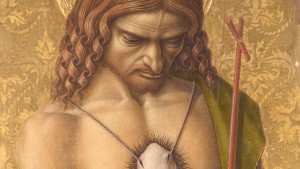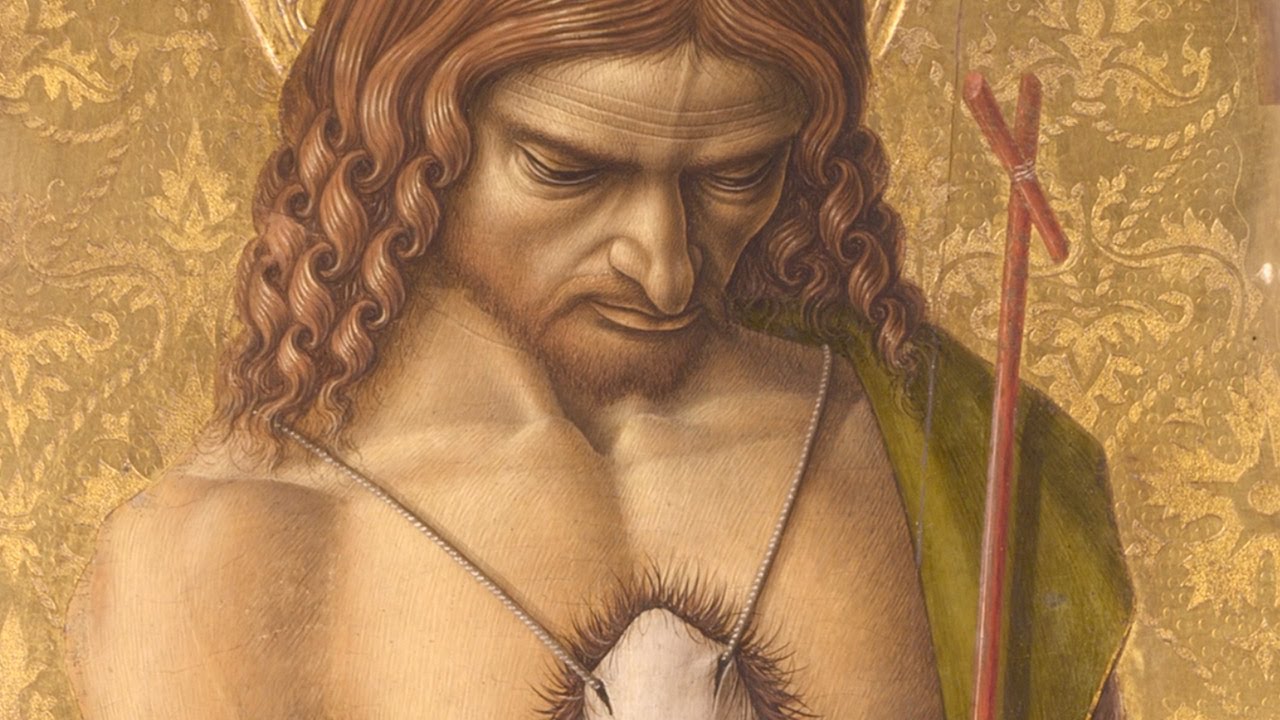
Central idea: The road to the Kingdom of God. Doctrine and practical application: Prayer for the coming of the Kingdom of God.
To view Lectionary 6, click here.
Central idea: The Road to the Kingdom of God
Reading 1 Bar 5:1-9
Jerusalem, take off your robe of mourning and misery;
put on the splendor of glory from God forever:
wrapped in the cloak of justice from God,
bear on your head the mitre
that displays the glory of the eternal name.
For God will show all the earth your splendor:
you will be named by God forever
the peace of justice, the glory of God’s worship.Up, Jerusalem! stand upon the heights;
look to the east and see your children
gathered from the east and the west
at the word of the Holy One,
rejoicing that they are remembered by God.
Led away on foot by their enemies they left you:
but God will bring them back to you
borne aloft in glory as on royal thrones.
For God has commanded
that every lofty mountain be made low,
and that the age-old depths and gorges
be filled to level ground,
that Israel may advance secure in the glory of God.
The forests and every fragrant kind of tree
have overshadowed Israel at God’s command;
for God is leading Israel in joy
by the light of his glory,
with his mercy and justice for company.
- The Prophet Baruch describes the exiled Jews returning to Jerusalem, led by God.
- The Chosen People have been gathered from all over the world to be led back home.
- God has prepared a level road back for them, with the land of Israel overshadowed with “forests and every fragrant kind of tree” for shade.
- This is a very good return. God in his mercy and justice has remembered them, called them back, and they are filled with joy.
- We Christians understand this splendid Jerusalem as our life with God in heaven. We also look forward to the New Jerusalem we will enjoy in our resurrected bodies.
- We Christians understand the Chosen People are all the Children of God, all who are his friends.
- We Christians understand the road there is the Person of Jesus Christ, the Way to salvation and eternal life.
Responsorial Psalm Ps 126:1-2, 2-3, 4-5, 6
R. The Lord has done great things for us; we are filled with joy.
When the LORD brought back the captives of Zion,
we were like men dreaming.
Then our mouth was filled with laughter,
and our tongue with rejoicing.Then they said among the nations,
“The LORD has done great things for them.”
The LORD has done great things for us;
we are glad indeed.Restore our fortunes, O LORD,
like the torrents in the southern desert.
Those who sow in tears
shall reap rejoicing.Although they go forth weeping,
carrying the seed to be sown,
They shall come back rejoicing,
carrying their sheaves.
- We human beings are made for all happiness all of the time but our lives are not like that. We want and need salvation and that is what God promises us.
- We are now mostly in the going “forth weeping” stage. When we see our salvation, we will be “like men dreaming.”
Reading 2 Phil 1:4-6, 8-11
Brothers and sisters:
I pray always with joy in my every prayer for all of you,
because of your partnership for the gospel
from the first day until now.
I am confident of this,
that the one who began a good work in you
will continue to complete it
until the day of Christ Jesus.
God is my witness,
how I long for all of you with the affection of Christ Jesus.
And this is my prayer:
that your love may increase ever more and more
in knowledge and every kind of perception,
to discern what is of value,
so that you may be pure and blameless for the day of Christ,
filled with the fruit of righteousness
that comes through Jesus Christ
for the glory and praise of God.
- Jesus is our road or way to salvation. Once we find the road it is our job to walk forward on it.
- This reading is all about going forward from where Christ began to work in us to its fulfillment: “that the one who began a good work in you will continue to complete it until the day of Christ Jesus.”
- Everyone who travels along a road needs energy. What is the energy of one on this way? It is “the affection of Christ Jesus.” St. Paul has it and it motivates him not just to travel the road himself but to help the Philippians do the same.
- Everyone on a road needs directions, too, lest he gets turned around or makes a wrong turn. This map St. Paul also has: “that your love may increase ever more and more in knowledge and every kind of perception, to discern what is of value, so that you may be pure and blameless for the day of Christ.”
- For us travelers, truth is the correspondence of our minds to reality. Our love must be united to knowledge, to perception, to discernment in regard to what is really of value. In his letter to the Ephesians, St. Paul says the same thing in different words: “speaking the truth in love, we are to grow up in every way into him who is the head, into Christ” (Eph 4:15).
- A good philosopher would say that we must conform our desires for fulfillment to what is truly good, and this is seen in the natural law written in our hearts. A good Catholic philosopher would say, “Yes: the natural law elevated by the law of Christ.”
Alleluia Lk 3:4, 6
Prepare the way of the Lord, make straight his paths:
all flesh shall see the salvation of God.
- The way of the Lord is not a road for Christ to walk. It is the road we walk to reach him. Everyone is actually on this road, whether he knows it or not. And everyone will reach Christ in the end. The question is what that meeting will be like.
Gospel Lk 3:1-6
In the fifteenth year of the reign of Tiberius Caesar,
when Pontius Pilate was governor of Judea,
and Herod was tetrarch of Galilee,
and his brother Philip tetrarch of the region
of Ituraea and Trachonitis,
and Lysanias was tetrarch of Abilene,
during the high priesthood of Annas and Caiaphas,
the word of God came to John the son of Zechariah in the desert.
John went throughout the whole region of the Jordan,
proclaiming a baptism of repentance for the forgiveness of sins,
as it is written in the book of the words of the prophet Isaiah:
A voice of one crying out in the desert:
“Prepare the way of the Lord,
make straight his paths.
Every valley shall be filled
and every mountain and hill shall be made low.
The winding roads shall be made straight,
and the rough ways made smooth,
and all flesh shall see the salvation of God.”
- John the Baptist is a prophet in the vein of the great Old Testament prophets.
- Luke writes as a historian. He sets the call of John the Baptist in time: first the Roman civil rulers, then the Jewish religious rulers.
- All flesh shall see the salvation of God. As announced by Isaiah, the savior of the world is on his way.
- Because the end times are upon us with the advent of the Messiah, people must prepare by reforming their lives (NAB note for 3:1-20).
- One way to read John’s words about roadbuilding is the road into our hearts. Every listener is urged to “straighten out” his or her life.
- To respond to this call from God, the Chosen People can receive from John “a baptism of repentance for the forgiveness of sins,” that is, a rite which symbolizes their desire to turn away from sin and to be purged of it.
Doctrine and practical application: Prayer for the coming of the Kingdom of God
- Advent means coming or arrival. We look back at the first coming of Christ in his Incarnation and we look forward to his final coming at the end of time.
- Meanwhile, we pray for the coming of the Kingdom, as Christ taught us to do in the Lord’s Prayer: “Thy kingdom come, Thy will be done on earth as it is in heaven.” In fact, “Christian petition is centered on the desire and search for the Kingdom to come” (CCC 2632).
- This is a petitionary prayer because we are asking God for something. “There is a hierarchy in these petitions: we pray first for the Kingdom, then for what is necessary to welcome it and cooperate with its coming” (CCC 2632). Objectively, the Kingdom is the greatest good change the human race can experience. Subjectively, we must each undergo good change with God’s help so that the Kingdom can become more of a reality now.
- The Church collaborates in this mission of Christ and the Holy Spirit” (CCC 2632). This “is the object of the prayer of the apostolic community” (CCC 2632). This was the prayer of St. Paul in our second reading. In it we see how “the divine solicitude for all the churches ought to inspire Christian prayer” (CCC 2632). Thus, “by prayer every baptized person works for the coming of the Kingdom” (CCC 2632).
- When we petition God on behalf of another, that is intercessory prayer. “The first Christian communities lived this form of fellowship intensely” (CCC 2636). In our second reading, for example, St. Paul writes to the Philippians “I pray always with joy in my every prayer for all of you.”
- There is no one we cannot pray for: even “‘for all men, for kings and all who are in high positions,’ for persecutors, for the salvation of those who reject the Gospel” (CCC 2636).
- As the Catechism puts it above, “we pray first for the Kingdom, then for what is necessary to welcome it and cooperate with its coming.”
- First we pray for the Kingdom because it is objectively the greatest good our world will experience, but its coming is something only God can accomplish.
- Then we pray for what is necessary to welcome it. I think this means more natural good and more supernatural good. We pray for truth, peace, justice, and an increase in material and spiritual blessings for everyone. And we pray for more grace for everyone.
- Then we pray for what is necessary to cooperate with its coming. That means we pray for ourselves and others to undergo good change.
- The valleys of our deficiencies and our omissions when it comes to doing good must be filled in. The mountains of our pride and commissions of evil must be laid low. This is the reform of our lives that John the Baptist preached.
The Homiletic Directory offers these Catechism points and themes for the Second Sunday of Advent for Cycle C.
- CCC 522, 711-716, 722: the prophets and the expectation of the Messiah
- CCC 523, 717-720: the mission of John the Baptist
- CCC 710: Israel’s exile foreshadowed the Passion
- CCC 2532, 2636: Paul’s solicitude

Leave a Reply